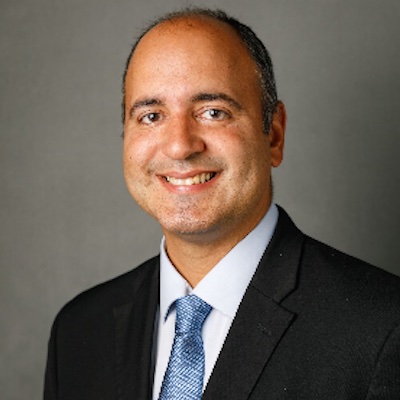Dr. Alberto Ramos

Biography
Dr. Ramos is a Professor of Clinical Neurology and the Research Director of the sleep disorders program at the University of Miami, Miller School of Medicine. He mentors and trains physician scientists. As a McKnight Institute for Brain Research collaborator, he focuses on the intersection between sleep disorders, cerebrovascular disease, and neurocognitive aging in population-based studies. As an investigator, he has also been involved with the Northern Manhattan Study and the Hispanic Community Health Study/Study of Latinos (HCHS/SOL) since 2010. Further, he was the Miami site-PI for the ancillary sleep study, Sueño (R01HL098297)-Sleep as a Risk Factor for Disease in HCHS/SOL. Sueño aimed to determine the prevalence of abnormal sleep patterns in 2,200 Latinos using actigraphy. This work led to Sleep in Neurocognitive Aging and Alzheimer’s Research (www.sanarbrain.com), which is a five-year, $13 million Research Project Grant (R01AG067568) from the National Institutes of Aging to study the impact of obstructive sleep apnea and nocturnal blood pressure on the risk of Alzheimer’s disease and other dementias in Hispanic/Latino adults.
He was the Chair of the Young Investigator Research Forum for the American Academy of Sleep Medicine Foundation (AASMF). He is also the Founding Chair of the yearlong Sleep Research Fellowship Committee (SOAR program) of the AASMF. He is part of the editorial board for the American College of Chest Physicians (CHEST) and the Brain and Life Magazine for the American Academy of Neurology. In 2021, he was invited to participate in the Sleep Disorders Research Advisory Board for the National Center on Sleep Disorders Research.
Dr. Ramos is a Fellow of the American Academy of Sleep Medicine, of the American Academy of Neurology, and of the C-Change Institute on Leadership and Mentorship from Brandeis University. He is board certified in Neurology and Sleep Medicine. Dr. Ramos evaluates and treats patients with sleep disorders and performs intraoperative neurophysiologic monitoring.